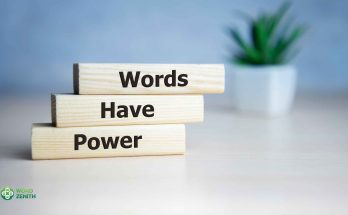Word games have been a beloved pastime for centuries, from crosswords to Scrabble and modern app sensations like Wordle. But these games offer more than just entertainment – a growing body of research shows they provide measurable psychological and cognitive benefits as well. Playing word games can be an easy, accessible way to reduce stress, improve mood, enhance brain health, and promote an overall sense of relaxation and wellbeing.
How Word Games Reduce Stress and Anxiety
In our fast-paced, technology-driven world, stress has become a major public health concern. When stress becomes excessive or prolonged, it can contribute to several physical and mental health problems, including anxiety, depression, cardiovascular disease, impaired immunity, insomnia, and more.
Finding effective, accessible stress relief techniques is essential for both treating and preventing these issues.
Research has shown word games to be highly effective at alleviating stress and anxiety. Puzzles like Word zenith, crosswords and word searches activate the problem-solving sections of the brain, which triggers the release of dopamine – a neurotransmitter associated with pleasure, motivation, and calm.
One study found that playing casual video games like Bookworm significantly decreased cortisol levels, a key stress hormone. Other studies found decreases in heart rate, blood pressure, and overall feelings of anxiety and worry after short word game interventions.
Unlike medication or therapy, word games offer an easy, low-barrier way to activate the body’s natural stress relief response. The mental distraction provides an escape from anxious thoughts while still being mentally stimulating.
The games also provide a sense of productivity and accomplishment as players successfully complete puzzles, boosting mood and confidence. For these reasons, word games are now frequently used in clinical settings to help patients cope with challenging health situations that often involve high stress.
Cognitive Benefits – Improved Focus, Memory, and Brain Health
In addition to stress relief, research has highlighted some remarkable cognitive benefits associated with playing word games. Puzzles like crossword and scrabble have been linked to improved focus, attention, and concentration. The need to filter out distractions and intensely engage problem solving and memory brain networks appears to sharpen these skills over time.
Longitudinal studies tracking cognitive health have found that regular word game players experience slower age-related cognitive decline than non-players.
One study of over 700 seniors found participants who played board games like Scrabble and Boggle once a week had a 30-40% lower risk of developing dementia and Alzheimer’s disease.
Research suggests word games may help strengthen neural connections and even promote the growth of new connections, allowing the brain to compensate for age-related losses.
Similar cognitive benefits have been noted in children who grow up playing word games. Young players tend to develop larger vocabularies and score higher on reading comprehension and verbal intelligence test.
These mental exercises are like resistance training for the brain, keeping it strong and flexible into old age.
Promoting a Relaxed, Mindful State
Word games require intense focus and activation of the prefrontal cortex, the section of the brain responsible for complex thought. This acts to quiet the emotional amygdala, reducing anxiety and easing us into a state of calm, focused relaxation.
We tend to associate this state with reading, but research suggests word games may be even more effective at cultivating a “mindful” state as the active problem solving further engages attention.
Studies using EEG recordings of the brain have found increased alpha and theta wave activity while completing word puzzles – the wave patterns associated with wakeful relaxation, positive mood, and lowered stress.
Participants report entering a “flow” state of absorption in the task, with outside worries receding into the background. This meditative-like absorption offers an effortless way to build mindfulness skills.
Unlike mobile games and social media, word puzzles provide a healthy form of escape and distraction. They allow us to unplug from screens and hyper-stimulation yet remain mentally active in an immersive yet restorative way.
The relaxation benefits are enhanced by the absence of the stresses and anxiety often associated with digital overload. In a world filled with distractions vying for attention, word games compellingly hold ours – helping us feel centered and restored.
Key Factors that Enhance Stress Relief and Relaxation
Not all word games offer the same benefits – certain elements enhance the stress relief and relaxing effects. Key factors include:
- Avoiding time pressures or competition – games like Wordle that allow you to proceed at your own pace are ideal. Crosswords and word searches also lack these stresses. Rushed competitive play undermines relaxation.
- Balancing difficulty – too simple and the mind disengages, too challenging leads to frustration. Regularly adjusting difficulty promotes flow.
- Physical format – paper puzzles feel more relaxing than digital ones. Tangible materials like Scrabble tiles enhance sensory engagement.
- Esthetics – beautiful materials, like letterpress crossword books, engage the senses. Dictionary apps don’t offer the same effect.
- Freedom from ads and interruption – simplicity fosters absorption. Digital games with ads, notifications disrupt flow.
- Tactile, multi-sensory elements – tracing letters, wooden tiles, etc. It enhances mind-body connection.
- Offline and unplugged play – reducing screen time and digital connection aids relaxation.
When these elements combine in a word game, they more fully transport our awareness, easing stress, engaging focused attention, and relaxing both mind and body in the process.
Read More: Strategies for Boosting Creativity and Linguistic Proficiency with Word Games
Applying Word Game Benefits in Daily Life
Here are some simple ways to integrate word games into your life to reap the anti-stress and relaxation rewards:
- Set aside 15 minutes for a daily word game session. Consistency is key for benefits. Make it part of your routine.
- Keep word search books, crossword puzzles magazines, or game apps on your phone for a micro-break whenever you feel stressed. The 5-15 distraction can relax and recharge you.
- Get a word game that you find esthetically pleasing, like a wood scrabble set or calligraphy puzzle book, and leave it in clear sight as mental calm decoration.
- Schedule regular local multiplayer word game nights with a group of friends for a fun, low-key social activity that also eases stress.
- Try alternating word puzzles with other relaxation practices like deep breathing, meditation, or yoga to enhance effects of both activities.
- Incorporate word games into screen time limits for children or as a couple’s activity in place of TV time to create bonding experiences.
- Offer to bring word game materials when visiting elderly relatives. The social and cognitive engagement is therapeutic.
Finding even small ways to incorporate word puzzles and games into your routines can pay dividends through measurable reductions in stress and improvements in cognitive health, focus, mood, and overall well-being.
While screens and digital demands increasingly strain our attention, word games compel us to positively and actively engage our minds, providing enjoyment along with therapeutic relaxation and stress relief.




